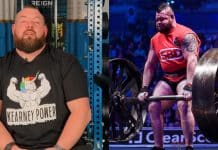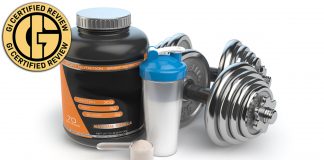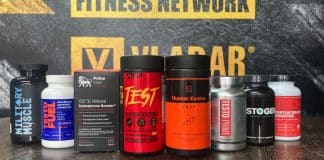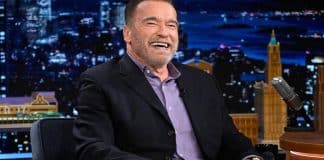Bodybuilding promoter Chris Minnes goes into transparent detail about how bodybuilding prize money is determined and ways in which the sport can raise higher payouts.
Bodybuilding competitions, the athletes who compete in them, and the fans who attend them are the lifeblood of the growing sport. But many believe that the sport will hit a plateau in growth and popularity if the prize money cannot be raised to higher amounts. While passion is an important factor for athletes who compete in bodybuilding – prize money is what allows these competitors to become career athletes. So what can be done to increase total prize money and help further grow the sport? In our latest GI Exclusive, bodybuilding promoter Chris Minnes explains how prize money works and what can be done to increase it.
Prize money for big events such as the Mr. Olympia and Arnold Classic often catch a lot of attention due to their big payouts. However, only one bodybuilder can earn first place, and the big cash prize, per year. Beyond these two pinnacle shows, the remaining pro shows offer relatively much lower amounts. Unlike other team pro sports like Football, Baseball, or Basketball – bodybuilders do not get paid simply for being pros and competing. They have to win.
This causes most pro bodybuilders to find other sources of income – as prize money alone cannot support their careers. While there is a successful infrastructure of entrepreneurial spirit and sponsorships – some believe that the sport needs bigger cash prizes in order to further grow into the next step. This, of course, is easier said than done. That’s why we turned to Chris Minnes, a successful bodybuilding promoter, to help explain the prize money process.
Everything you need to know about bodybuilding prize money
Chris Minnes starst off by explaining the NPC and IFBB Pro leagues have a minimum required cash purse. Most starting NPC and Pro shows will start at this minimum amount as they attempt to build more attention in order to grow the competition in the future. Running a bodybuilding competition comes with costs beyond running the event including registration fees to the league in order to legally put on the show.
So how do bodybuilding shows get past the prize money minimum while also still making a profit? Chris Minnes explains the next go-to decision is to bring in sponsors to help allow for higher cash prizes. But as Minnes further explains – even high level sponsorships cannot cover the cost of a big bodybuilding prize similar to what you’d see at the Mr. Olympia. So if sponsorships aren’t enough – what can be done?
Luckily the rise of the internet has allowed for much more direct advertising of a bodybuilding show. And most recently, PPV live streaming is finally getting a foothold on competitive bodybuilding – with even mid-tier shows being able to somewhat easily set up a stream. This opens up the possible ticket sales astronomically in theory. No longer is a local NPC or IFBB Pro show limited by it’s location. It can be seen across the world.
Yet the technological ability is only one part of the equation. Promoters still need to get people interested in large enough droves to bring in bigger revenue for bigger prize money. With so many competitions each year – getting to stand out for a more local show can be challenging.
This, Chris Minnes argues, is where the power of the athletes is vastly important. Minnes believes that athletes need to promote the events they compete in far more and far earlier to help drive sales. This just isn’t a plea for free advertising to make Minnes more money. It’s to make the competition earn more money so he can then raise the quality of the show and raise the prize money. Minnes believes that athletes, with their own online followings, can help directly improve their own profits by helping to promote shows.
Lastly, Chris Minnes also talks about how piracy is becoming an increased problem in the era of live streaming PPV events. Bodybuilding promoters do not have the massive network on the same level as a UFC PPV event – so it cannot obtain the same kind of security to stop illegal free streams. Minnes claims that he has seen pirated streams of his shows garner tens of thousands of views. In his mind – that’s the fans directly stealing prize money from the athletes.
There are a lot of hurdles to overcome – and many can perhaps be consider growing pains as the sport evolves alongside new technological options. You can watch Chris Minnes talk about it in full and refreshing transparent detail in our latest GI Exclusive interview segment above.















